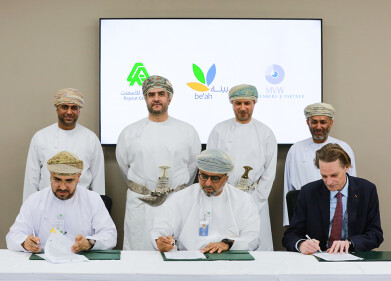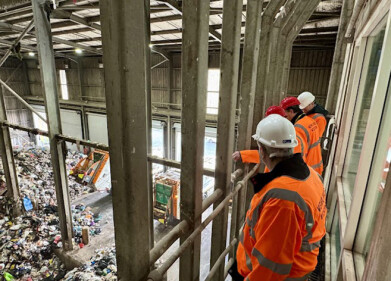Waste management
Coca-Cola Accounts for 12% of UK Beach Pollution
Jun 24 2019
Cans, bottles and other forms of packaging belonging to Coca-Cola are the most commonly-found forms of waste on British beaches, according to new analysis carried out by Surfers Against Sewage (SAS). The group carried out their research during 229 clean-ups of beaches around the British Isles this April, during which over 50,000 individual pieces of waste were collected.
40% of that rubbish carried labelling with identifiable brands on it and Coca-Cola were the largest culprits, accounting for nearly 12% of all the identifiable waste gathered. When other brands under the Coca-Cola name were included in the statistics, their overall share of beach pollution in the UK rose to 15%. The group behind the study are using it as evidence that there needs to be tighter legislation forcing global corporations to take responsibility for their packaging.
Ignominious leader board
The results of the study were collated during a series of events in April named the Big Spring Beach Clean, which aimed to quantify the increasingly concerning problem of plastic pollution in the UK and clean up British beaches in the process. More than 45,000 volunteers to part in the scheme, picking up an incredible 50,000 pieces of waste in the process.
While Coca-Cola have not come out of the study smelling of roses, plenty of other household name corporations were also responsible for significant percentages of the pollution. Indeed, the investigation demonstrated that 10 companies were responsible for over 50% of the pollution on British beaches. Trailing Coca-Cola was PepsiCo (10%), Cadbury’s (7%), McDonalds (6%) and Nestlé (5.5%).
Case for the defence
Coca-Cola has responded to the survey by pointing out that it is one of the few companies which actually publishes data on the amount of packaging it produces, which currently stands at approximately 3 million tonnes of plastic every year. It also highlighted the fact that all bottles and cans in the UK are 100% recyclable, while it is planning to increase its global use of recycled plastic from 25% to 50% by next year.
“When disposed of properly, our bottles can be recycled into new bottles over and over again,” said a spokesperson for the company. “The current consultations on packaging and recycling represent a once-in-a-generation opportunity to reform the system to ensure more packaging is recovered and recycled and we welcome these.”
Legislative changes needed
SAS have submitted the results of their study to the government in the hope it will add to previous calls to tackle irresponsible packaging from multinational companies. At present, any business with an annual turnover greater than £2 million and which processes over 50 tonnes of packaging per annum must be accountable for what happens to it.
In practice, however, SAS argues that around 90% of the expense of dealing with packaging waste is left to local authorities. “Producers must offer full transparency and disclosure on the amount and type of packaging they use,” said Hugo Tagholm, CEO of SAS. “Our environment is in peril and plastic pollution is a clear indicator that business as usual just won’t do.”
Events
Apr 15 2025 Moscow, Russia
Apr 21 2025 Shanghai, China
May 11 2025 Vienna, Austria
May 18 2025 Algiers, Algeria
23rd International Water Management Exhibition
May 20 2025 Prague, Czech Republic














